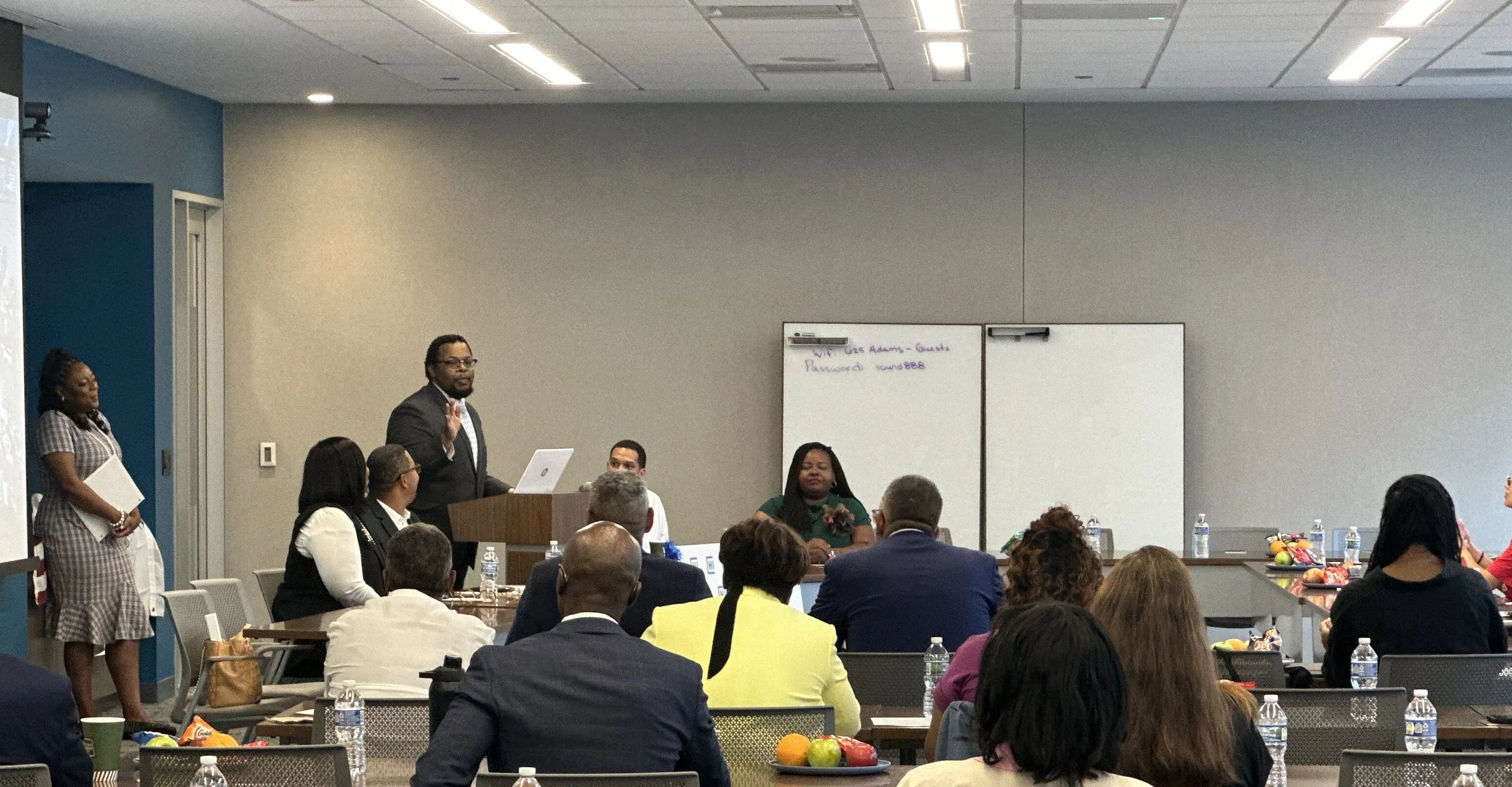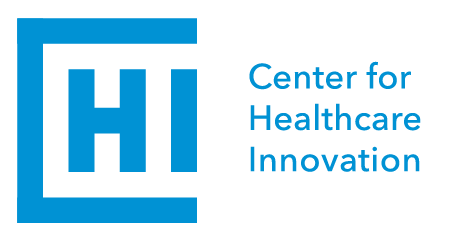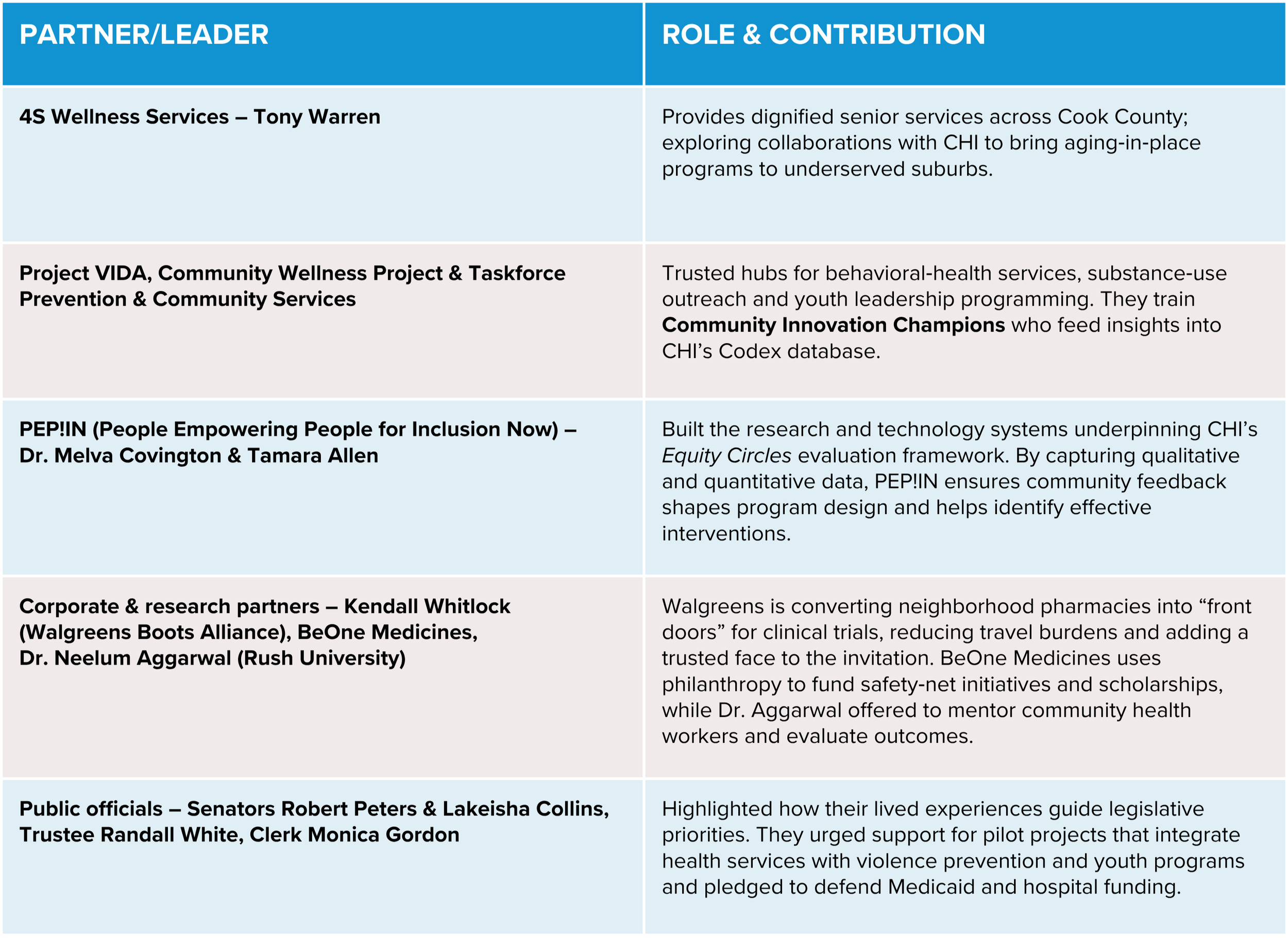13th Annual Health Equity & Innovation Symposium – Executive Summary

13th Annual Health Equity & Innovation Symposium – Executive Summary
Theme: Equity Undivided – “And the Beat Goes On”
Dates: 16–17 September 2025
Location: Center for Healthcare Innovation (CHI), 625 W. Adams St., Chicago, Illinois
The Center for Healthcare Innovation’s 13th Annual Health Equity & Innovation Symposium convened leaders from government, health systems, academia and community organizations at a moment when U.S. social‐safety programs are facing deep cuts. Over two days, speakers argued that health equity is not a parallel initiative but the foundation for public safety, economic vitality and scientific progress. This summary highlights insights from each day, profiles key participants, and introduces the Health Equity Awards nominees who exemplify CHI’s mission of innovation and inclusion.
Here is Day 2 for you to enjoy. If you want the full experience, come join us next year!
DAY 1 – EQUITY AS THE FOUNDATION OF PUBLIC SAFETY & STABILITY
Building public safety through equitable systems
Participants repeatedly connected public safety to the broader social conditions in which people live. Leaders from Park Forest, Harvey and Robbins warned that when safety‐net hospitals close, Medicaid coverage is restricted and health workers are underpaid, communities lose the stability needed to thrive. Cook County Clerk Monica Gordon summarized the argument succinctly: police and prosecutors cannot fix disparities that are rooted in inadequate housing, food deserts and underfunded schools - only a functioning safety net can.
Reinvest in safety‑net hospitals and clinics. Speakers urged federal and state agencies to treat hospitals as civic infrastructure and to prevent closures in underserved areas. Publicly owned systems like Cook County Health and federally qualified health centers were highlighted as anchors for community wellbeing.
Protect Medicaid coverage. Attendees called Medicaid “the backbone of community safety,” recommending simpler enrollment and renewals, fair reimbursement rates and continuous coverage for children and adults with chronic conditions.
Strengthen the workforce. Nurses, home‑care workers and behavioral‑health providers are exhausted and under‑compensated. Proposals included debt‑relief programs, scholarships to diversify the workforce and fair‑wage legislation.
Community leadership & partnerships in action
Day 1 showcased grassroots organizations that “do” equity, not just talk about it. Vanessa Smith of the South Side Help Center (SSHC) and marketing strategist Creola Hampton of Greaterworks LLC described how alliances across groups can tackle HIV/AIDS in Chicago’s Black community, where incidence among newly diagnosed Black women is fourteen times higher than among White women. SSHC not only provides HIV outreach and care but also runs youth programs and trains other nonprofits, while Greaterworks crafts culturally relevant campaigns that invite people into care. Other community partners included:
Equity Circles & Codex
CHI’s Equity Circles - small‑group dialogues that bring residents, partners and facilitators together - and the Codex database were lauded as models for accountable, community‑centered innovation. Circles provided safe spaces for sharing lived experiences, while Codex catalogues assets, maps referral pathways and preserves insights for future programs.
DAY 2 – INNOVATION, TRUST & STORYTELLING
Community showcase & connecting with community
Day 2 opened with a Community Showcase where partners presented innovative services that advance health equity. In “Insight In Action: Connecting with Community,” Joshua Travis (CHI’s Executive Director), Dr. Melva Covington, and Tamara Allen explored how equity‑driven programming and partnerships create lasting impact. They encouraged attendees to move from conversation to action and highlighted opportunities for volunteers, donors and advocates.
Bringing clinical trials to the community
Kendall Whitlock of Walgreens explained the company’s strategy to make clinical trials more accessible. Twenty neighborhood pharmacies now serve as “front doors” where pharmacists invite community members to participate, reducing travel and providing trusted faces. She emphasized that trials can serve as a healthcare access point for uninsured individuals and underscored the importance of inviting participation and listening to patient experiences - a theme echoed throughout the day.
Keynote conversation on trust in research
In a keynote conversation moderated by CHI board chair Julius Pryor, Rochelle Williams‑Belizaire argued that advancing health equity in clinical research begins with giving patients and communities agency. She champions a patient‑first approach in which patients lead and the research ecosystem follows. Her work designs innovative enrollment models that equip communities with data, resources and tools to understand clinical trial opportunities and make informed decisions. The conversation stressed that building trust requires transparency, collaboration with patient advocates and recognition of historical harms.
Innovation with and for community
A panel led by Dr. Linda Bing reframed innovation as an ethos of co‑design rather than a technology buzzword. She argued that healthcare innovation must be urgent, unequal and unfinished - explicitly addressing inequities so that new tools do not amplify existing harm. Success, she noted, should be measured by who is reached and who is left behind.
Ending HIV through partnerships
Moderator Creola Hampton and panelist Vanessa Smith highlighted the urgent need to address disparities in HIV prevention, testing and treatment. Chicago’s Black women face HIV infection rates fourteen times higher than those of White women, yet pharmaceutical companies allocate only about 2 % of community funding to Black organizations. The session called for alliances across nonprofits, public health departments and corporations to destigmatize HIV testing, fund Black‑led organizations and ensure that services meet the needs of the most affected communities.
Storytelling & science
Speakers consistently returned to the power of storytelling. Lived experiences—from trauma to inspiration—were shared as catalysts for policy change and community engagement. Research cited during the symposium showed that narratives activate parts of the brain associated with emotion and movement, making people more likely to adopt healthy behaviors when they see themselves in a character. Storytelling thus emerged as a tool not only for marketing or fundraising but for clinical trial recruitment and disease prevention.
Scientific advances were also showcased. For example, researchers discussed promising blood‑based tests for Alzheimer’s disease but warned that without diverse trial recruitment, equitable insurance reimbursement and culturally responsive care, such breakthroughs could widen disparities. HIV advocates similarly noted stark funding gaps for Black‑led organizations relative to community need. These discussions reinforced the principle that science must be paired with justice.
A shared mandate
The symposium closed with an urgent mandate: resist fragmentation, invest in alliances and keep communities at the center of healthcare reform. Leaders emphasized that “helicopter” engagement—dropping into communities without sustained partnership—is no longer acceptable. Long‑term collaborations, humility, curiosity and resilience are essential. Participants were encouraged to connect with speakers after the event and to carry partnerships forward. The phrase “And the Beat Goes On” became a call to sustain and accelerate the movement for health equity.
FEATURED PARTNERS
FEATURED SPEAKERS
HEALTH EQUITY AWARDS – NOMINEES & IMPACT
The CHI Health Equity Awards uplift individuals and organizations who drive community‑led innovation and research‑driven equity strategies. Nominees fall into two categories: the Collegiate Health Equity Award (students whose research increases access and reduces disparities) and the Community Health Equity Award (grassroots organizations and nonprofits that advance equity through services, education or systems‑level change). Only registered participants will receive a voting link.
CATEGORY - COMMUNITY ORGANIZATION AWARD
Sikhs in Clinical Research (SICR)
WHY WERE THEY NOMINATED?
They are committed to advancing diversity and cultural understanding in clinical research. Helps patients find trials, explains how trials work and promotes health equity through screenings and literacy initiatives.
IMPACT
Hosted over 30 guest speakers and 50 research‑awareness camps across more than 15 states, reaching 5,000+ attendees; distributed thousands of resources and video testimonials to inspire participation in clinical research.
Rush University Medical Center
WHY WERE THEY NOMINATED?
Academic medical center that has made health equity a central pillar through the RUSH BMO Institute for Health Equity. Integrates clinical care, education, research and community partnerships to address the life‑expectancy gap on Chicago’s West Side.
IMPACT
Operates a food pantry for families facing food insecurity and runs programs addressing housing, education and employment to tackle social determinants of health.
Youth Guidance
WHY WERE THEY NOMINATED?
Chicago nonprofit that implements school‑based programs helping children overcome obstacles and succeed academically. Services span counselling and prevention (e.g., Becoming a Man, Working on Womanhood), community and after‑school programs and career readiness initiatives.
IMPACT
Reaches about 20,000 youth in under‑resourced communities each year. Evidence shows participants in Becoming a Man experience higher graduation rates and roughly a 50 % reduction in violent‑crime arrests, demonstrating measurable impact on youth development and community safety.
Esperanza Health Centers
WHY WERE THEY NOMINATED?
Clinic network founded by residents of Chicago’s Pilsen and Little Village neighborhoods to address a lack of accessible care. Provides bilingual, high‑quality primary care, behavioral health and wellness services regardless of immigration status, insurance or ability to pay.
IMPACT
Serves more than 50,000 patients annually on Chicago’s Southwest Side. Recognized by the Health Resources and Services Administration (HRSA) as a National Quality Leader and Health Center Quality Leader, demonstrating sustainable impact in reducing disparities for Latino and immigrant populations.
Howard Brown Health
WHY WERE THEY NOMINATED?
Healthcare system rooted in LGBTQ+ liberation that provides affirming primary care, sexual‑health services, transgender health, behavioural health and social‑service navigation.
IMPACT
Over five decades, Howard Brown has grown from a small office to a city‑wide network of clinics. Its commitment to teamwork, creativity and advocacy advances LGBTQ+ health equity and human rights.
Youth Advocate Programs (YAP) Inc.
WHY WERE THEY NOMINATED?
National nonprofit delivering trauma‑informed, community‑based wraparound services as alternatives to youth incarceration, residential care and group‑home placements.
IMPACT
Reports show 86 % of high‑risk youth in its intensive programs remain arrest‑free and 93 % remain living at home during services; 95 % are still at home 6–12 months after discharge, illustrating the effectiveness of family‑centered, culturally competent alternatives to incarceration.
Brightpoint (formerly Children’s Home & Aid)
WHY WERE THEY NOMINATED?
Organization that advances the well‑being of children by investing in families to disrupt cycles of racial, social and economic inequality.
IMPACT
With a budget over $95 million, Brightpoint serves nearly 30,000 children and families statewide each year through parent support, child welfare, mental health & wellness and early childhood programs. Its data‑driven, prevention‑oriented model demonstrates scale and sustainable impact in addressing structural inequities.
Dr. Edwin Burkett
WHY WERE THEY NOMINATED?
Retired Air Force Colonel and family physician with 35‑year military career; serves as an International Health Specialist and medical director.
IMPACT
Provides whole‑person healthcare and teaches medical anthropology. Builds relationships across world organizations to advance population health, advocates for underserved patients and opens pathways for clinical research participation in free and charitable clinics.
Neha Chowrasia
WHY WERE THEY NOMINATED?
Healthcare leader, educator and advocate whose work spans clinical leadership, public speaking, publishing and community engagement.
IMPACT
Educates senior and culturally diverse populations through tailored programs at community centers and religious institutions. Leads hospital initiatives embedding equity into clinical operations and participates in national summits to advance inclusive healthcare practices.
CATEGORY - COLLEGIATE HEALTH EQUITY AWARD
Dr. Tonia Guida
WHY WERE THEY NOMINATED?
Assistant Professor of Instruction at the University of Texas at Austin and former Assistant Dean for Opportunity and Belonging. Her work focuses on increasing representation of underserved and first‑generation students in pharmacy and biomedical pathways.
IMPACT
Created programs such as PEPP, BOOT and LEADER to open educational pipelines. Through teaching and curriculum design, she promotes critical awareness of systemic inequities and prepares students to advocate for health equity.
CALL TO ACTION – KEEP THE BEAT GOING
The Health Equity & Innovation Symposium is more than a two‑day event—it is a movement. CHI encourages everyone who cares about health justice to:
Connect with partners. Reach out to community organizations and speakers profiled above to learn how you can support their work, volunteer, or collaborate on research and advocacy.
Carry the conversation forward. Share the themes and insights from this summary with colleagues, policymakers and community members. Host listening sessions, join an Equity Circle or start one in your community, and contribute to CHI’s Codex database.
Vote in the Health Equity Awards. Celebrate and uplift the nominees by casting your vote (link to be emailed to registrants). These awards amplify the voices of innovators and advocates who are building a more equitable health ecosystem.
As the symposium’s theme reminds us, “And the Beat Goes On.” Achieving health equity requires persistence, partnership and imagination. Let this summary be a catalyst for action—so that our collective heartbeat for justice never falters.
Joseph Gaspero is the CEO and Co-Founder of CHI. He is a healthcare executive, strategist, and researcher. He co-founded CHI in 2009 to be an independent, objective, and interdisciplinary research and education institute for healthcare. Joseph leads CHI’s research and education initiatives focusing on including patient-driven healthcare, patient engagement, clinical trials, drug pricing, and other pressing healthcare issues. He sets and executes CHI’s strategy, devises marketing tactics, leads fundraising efforts, and manages CHI’s Management team. Joseph is passionate and committed to making healthcare and our world a better place. His leadership stems from a wide array of experiences, including founding and operating several non-profit and for-profit organizations, serving in the U.S. Air Force in support of 2 foreign wars, and deriving expertise from time spent in industries such as healthcare, financial services, and marketing. Joseph’s skills include strategy, management, entrepreneurship, healthcare, clinical trials, diversity & inclusion, life sciences, research, marketing, and finance. He has lived in six countries, traveled to over 30 more, and speaks 3 languages, all which help him view business strategy through the prism of a global, interconnected 21st century. Joseph has a B.S. in Finance from the University of Illinois at Chicago. When he’s not immersed in his work at CHI, he spends his time snowboarding backcountry, skydiving, mountain biking, volunteering, engaging in MMA, and rock climbing.


